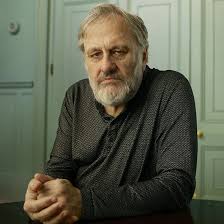Understanding Slavoj Žižek: Philosophy and Contemporary Issues

Introduction
Slavoj Žižek, the Slovenian philosopher and cultural critic, is one of the most provocative and influential figures in contemporary thought. Known for his engaging style and deep insights into ideology, politics, and culture, Žižek’s work challenges mainstream perspectives and invites critical reflection on the complexities of modern life. His relevance in today’s socio-political landscape makes an understanding of his philosophy essential for anyone interested in contemporary discourse.
Žižek’s Influence and Key Concepts
Žižek has made significant contributions to various fields, including psychoanalysis, Marxism, and critical theory. He often draws upon the ideas of Jacques Lacan and Karl Marx to critique capitalist ideology and discuss the dynamics of desire and fantasy in society. One of his most recognized insights is the idea that we are often unaware of the ideological constraints that shape our realities, which he illustrates through popular culture and cinema.
In recent public speeches and publications, Žižek has addressed pressing global challenges, such as the COVID-19 pandemic and the rise of authoritarianism. He argues that these crises reveal deeper ideological structures that underpin societal responses. For example, he posits that the pandemic has accelerated the resentment towards the established order and called into question the sustainability of capitalist practices, urging individuals to rethink the functions of solidarity and community.
Recent Events and Engagements
This year, Žižek has been active in various forums, delving into the intersection of philosophy and current affairs. His participation in debates concerning freedom and surveillance during the pandemic has garnered attention. He advocates for a re-examination of governmental responses that have prioritized control over civil liberties. Additionally, his recent book “Like a Thief in Broad Daylight” has sparked discussions on the need for radical change in the face of economic entropy.
Conclusion
Slavoj Žižek remains a vital voice, offering a lens through which we can examine the ideological undercurrents of our times. His work encourages readers to question normative beliefs and structures, pushing for a re-imagination of our socio-political realities. As the world grapples with complex issues—ranging from economic disparity to climate change—Žižek’s insights challenge us to engage critically and envisage alternative futures. For anyone navigating the tumultuous landscape of contemporary thought, Žižek’s contributions provide both a compass and a call to action.









